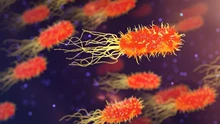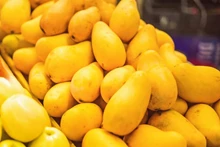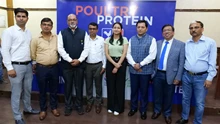
Watermelon, scientifically known as Citrullus lanatus, is a beloved summer staple, offering not just a burst of refreshing sweetness but also a way to beat the heat. With its high water content, it's a go-to choice for quenching thirst and staying hydrated during sweltering temperatures. Beyond its hydrating properties, watermelon packs a punch of essential nutrients, including lycopene, citrulline, and vitamins A and C, making it a nutritious addition to any diet. In India, Uttar Pradesh and Andhra Pradesh lead the pack in watermelon production, followed closely by Tamil Nadu, Karnataka, and Orissa. However, while watermelon is widely adored, the presence of seeds can pose an inconvenience for consumers. To address this issue, researchers have introduced a solution that has gained global recognition: seedless watermelon.
The Origins of Seedless Watermelons
Contrary to natural watermelons, seedless watermelons are a hybrid variety that was created from innovative breeding techniques pioneered by H. Kirata, a Japanese scientist and professor at Kyoto University, nearly 50 years ago. Kirata crossed diploid and tetraploid watermelon plants, resulting in the creation of triploid seeds. These seeds, containing an unusual combination of chromosomes, cannot fully develop into mature watermelon plants, thereby rendering them sterile and seedless. This innovative method revolutionized watermelon cultivation, offering consumers a convenient and hassle-free option for enjoying this beloved fruit.
Understanding the Breeding Process
Seedless watermelon varieties are the product of a specific breeding process. This method involves crossing a tetraploid inbred line, characterized by four sets of chromosomes (2n=4x=44), with a diploid inbred line, which contains two sets of chromosomes (2n=2x=22), serving as the male parent. In other words, pollen of diploid male flowers was sprinkled on the stigma of tetraploid female flowers. The creation of tetraploid watermelon is facilitated by the application of colchicine treatment, an alkaloid derived from the corms and seeds of Colchicum autumnale. Colchicine's mechanism involves binding to tubulin, thereby inhibiting spindle formation and chromosome separation during anaphase, resulting in tetraploid species.
The outcome of this intricate breeding process is a hybrid known as triploid (2n=3x=33), possessing an odd number of chromosomes. This triploid hybrid, devoid of viable seeds, exhibits sterility, thus manifesting the characteristic seedless trait observed in watermelons.
Other Hybrid Watermelon in India
Breeders continue to refine their techniques, with the development of hybrid varieties, each offering its unique blend of flavors, sizes, and colors.
-
From the Asahi Yamato's medium-sized fruits with a light green rind to the Sugar Baby's round fruits with bluish-black rinds, the choices are varied.
-
Arka Jyoti impresses with its round fruits and light green rind adorned with dark green stripes, while Arka Manik stands out with its oval fruits and deep red flesh.
-
Other varieties like Improved Shipper and Special No.1 add their distinct charm. From exotic locales like China and the USA, table-purpose varieties like Yellow Doll and Arriba promise a delightful culinary adventure.
Seedless Watermelon Market in India
In India, seedless watermelons are readily available through various companies such as Syngenta, Bigbasket, Namdhari Seeds, Flipkart, Genco Seeds, Cultree, IndiaMart, and more. These companies cater to the diverse preferences of consumers by offering seedless watermelons in two sizes: small (below 5 kg) and medium-large (above 5 kg). This wide availability ensures that consumers have access to fresh and delicious seedless watermelons across different regions and through various distribution channels, contributing to the popularity and accessibility of this sought-after fruit in the Indian market.
Seedless watermelons are a brilliant example of human creativity in agriculture. They showcase the endless potential of innovation in farming. With ongoing advancements in technology and science, the future of agriculture looks promising. Through further research and development, we can expect even greater progress in cultivating seedless watermelons and other crops, ensuring a plentiful and sustainable food source for the future.











